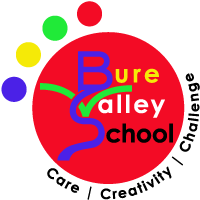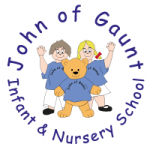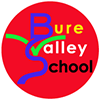At Bure Valley School, we want to cultivate a curriculum that continues to develop for an evolving learning community.
When developing our curriculum we are mindful of:
- National Curriculum Programmes of Study
- Our context, co-operative values and agreed curriculum drivers
- The schools we work in partnership with other schools
- The types of children we inherit
- The strengths of the families we serve
- The types of things a ‘BVS learner’ might struggle with
- The things we need to have in place and do to make our pupils ‘secondary ready’
- The core knowledge our children will benefit from knowing
- How best to develop a curriculum that is interconnected, optimally sequenced and progressive
At Bure Valley School, we pride ourselves on providing an engaging, broad and balanced curriculum, which builds on the knowledge, understanding and skills of all learners, whatever their starting points, and as they, progress through each year group. We want our pupils to feel empowered by what they know, confident in what they are able to do and become socially and emotionally well developed.
Our curriculum incorporates the statutory requirements of the National Curriculum and other experiences and opportunities which best meet the learning and developmental needs of all children in our school. The aim of our curriculum is for children to have the requisite skills to be successful, independent and motivated learners in readiness for their next stage of education.
Communication is central to our approach, because it is the foundation by which children can both demonstrate and develop their learning. Communication is an essential tool for learning and self-expression. It enhances life chances for all.
At BVS, we organise our curriculum to ensure individual subjects are given plentiful coverage. Resulting in unique disciplines and wonderful developmental opportunities. We believe that every child should have fantastic childhood experiences. Therefore, we aspire to give the children experiences to cherish and to help develop content, motivated individuals. Our future BVS 60 will ensure that all pupils leave our school with the necessary independence, skills and understanding to move on to secondary school with confidence.
As you can see, it is important to us that the curriculum we shape considers the development of the whole child, as well as their knowledge retention and academic success.
Throughout the academic year, we host a range of special whole school themed events or weeks. These enable staff to amend the regular timetable so that children can spend time concentrating their attention and energy on one particular area of learning. The purpose is to broaden children’s opportunities and to add some interest and delight to their school experience. These special events/weeks also provide an opportunity for children to enjoy an intensive, in-depth, deep and satisfying learning experience.
Central to our curriculum and learning is our focus on children developing key communication skills and working co-cooperatively together. We are embedding our use of cooperative approaches to learning within our lessons to promote this. When our teachers design learning opportunities, they look for ways for us to develop good learning behaviours.
We are a research driven school that places a great emphasis on continuous professional development. We believe that strong pedagogy goes hand in hand with an excellent curriculum. Therefore, we strive to help our teachers:
- Become better teachers
- Further develop their subject knowledge
- Have a secure understanding of the science of learning
As a result, BVS staff are well placed to design and deliver our knowledge rich curriculum - in an environment that is supportive and conducive to learning.
The teaching of our curriculum is delivered through highly focussed lesson design with sharp objectives and high demands of each child. High levels of interaction is expected of all children. Our passionate teachers are experts on what they are teaching, use teacher questioning, modelling and explanations to support effective learning in the classroom. There is an expectation that our children will develop their resilience, accept responsibility for their own learning and work independently. Teacher’s use of regular praise and encouragement helps to motivate children.
The BVS curriculum consists of many planned experiences in and out of school. This includes lessons, topic days, school council, assemblies, clubs, sports events, trips and visits, workshops, activities week, camps, fund raising and work in the community. Curriculum outcomes have been designed to meet the requirements of the National Curriculum but also to develop the skills needed for learning and for life.
Our school takes great pride in providing a highly inclusive environment, where learners demonstrate high level of enjoyment in their education and make good progress in most subjects and areas of learning. Children at all levels are helped to achieve their potential across the curriculum. Those who are most able are challenged and supported through being offered tasks which provide opportunities for greater depth and those who struggle are encouraged and given targeted support to embed skills, to develop at their own pace and cover objectives that are better suited to their learning journey.
Further to this, is the learning and provision in place to ensure our children are emotionally literate and mentally healthy; through our structured curriculum, awareness days, high profile mental health work and learning, as well as, access to a specialist, in-house team of social, emotional and mental health support (SEMH) professionals and pastoral support. We support children to be resilient and aware of themselves and their own feelings.
A varied timetable for extra-curricular activities is offered to all pupils; with clubs that support the core curriculum offer, as well as those that develop specialist skills and interests and extend the range of pupil’s experiences.
Curriculum leaders play an important part in the success of the curriculum by leading a regular programme of monitoring, evaluation and review and the celebration of good practice contributes to the ongoing commitment to evolve and improve further. All curriculum leaders at BVS are given training and the opportunity to keep developing their own subject knowledge, skills and understanding, so that they can support curriculum development and their colleagues across the school. Every subject leader is given a morning of non-contact time, to work on their subject each term.
At BVS, we want to instil in our children a love of learning and an understanding that the learning is part of a journey they are on; we want pupils to feel safe, to express and celebrate their learning achievements and recognise their own personal and academic growth.
Through the following ways, we know if we have been successful in our curriculum aims and delivery:
- Teacher assessment – Formative: ongoing questioning, dialogue, verbal and written feedback, informal quizzes, practical tasks, day-to-day work, reasoning. Summative: tests, end of topic test, comparative judgement writing tasks and cross-curricular writing.
- Pupil/learner voice – Pupil questionnaires, self and peer assessment, school council feedback, learning dialogue in the classroom and pupil self-evaluation.
- Parent/carer feedback – Parent questionnaires, parent café, workshops, family learning events, parent/teacher meetings, Twitter involvement, informal meetings before and after school, Friends of BVS PTA.
- Data analysis – internal with SLT, curriculum leadership, pupil progress discussions, governor monitoring/reports, external data (SATs, MTC).
- Quality assurance – Lesson drop-ins, joint observations, learning walks, book looks, professional dialogue meetings.
- Positive attitudes to learning – Children engaged and inspired by their learning, posing own enquiry questions, pupils taking the initiative, good behaviours for learning in the classroom and around school.
- Respect – Visibly demonstrated through the school environment, pupils work, interactions and moral responsibility.
- Participation in community – Proudly representing the school through sports teams (tournaments/galas/matches/events), school council, pupil leadership roles, intergenerational events, community events and working with invited guests.
- Case studies – To measure the academic, personal, social and emotional progress of our most vulnerable children through case studies.
We are passing on the discoveries and work of the previous generations to the next, whilst empowering pupils to add to this body of knowledge in the future.
Further reading/information
A whole school curriculum overview showing areas covered in each subject in each year group is available.
Each year group has their own twitter feed to share our wonderful curriculum work with others.
@BVSYear_3 @BVSYear_4 @BVSYear_5 @BVSYear_6
There are also:
@BVSYear_sports @BVSYear_STEM @BureValleyArt and the main school feed @BureValleySch.
Texts (all available to borrow from our CPD library in room 9)
Trivium 21C – Grammar, Logic and Rhetoric by Martin Robinson
‘The Learning Rainforest’ by Tom Sherrington
‘Why Students Don’t Like School’ by Daniel Willingham
‘The Knowledge Deficit’ by E.D. Hirsch
‘Making Good Progress’ by Daisy Christodoulou
‘Closing the Vocabulary Gap’ by Alex Quigley
‘Bringing Words to Life’ by Beck, McKeown, Kucan
‘Creating Robust Vocabulary’ Beck, McKeown, Kucan
‘What Does This look like in my Classroom?’ by Carl Hendrick and Robin MacPherson
‘Reading Reconsidered’ by Doug Lemov
‘Writing Revolution’ by Hochman, Wexler
‘Memorable teaching’ by Peps Mccrea
‘Making It Stick’ by Brown, Rodiger, McDanial
‘Visible Learning and the Science of How We Learn’ by John Hattie & Gregory Yates
‘Practice Perfect’ by Lemov, Woolway, Yezzi
Blogs and Twitter:
Jon Brunskill – @jon_brunskill. Blog: That Boy Can Teach
Tom Sherrington’s blog : Teacher head – in particular a post named: ‘What is a knowledge-rich curriculum? Principle and Practice.’



